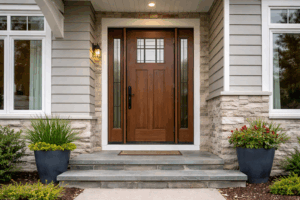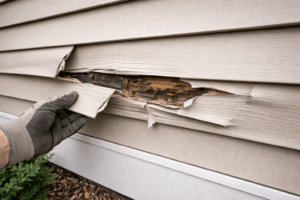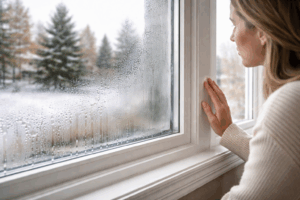Choosing the right window material is key to creating a beautiful, functional, and energy-efficient home. With so many options available, understanding the pros and cons of each material can help you make the best decision. This guide explores the most popular window materials and what makes them unique.
Why Window Material Matters
The material of your windows affects:
- Durability: Some materials resist wear and tear better than others.
- Energy Efficiency: Insulated materials can reduce energy bills.
- Maintenance: Certain materials require less upkeep over time.
- Aesthetic Appeal: Each material offers a distinct look and feel.
Common Window Materials
1. Vinyl Windows
Vinyl is one of the most popular choices for modern windows.
Advantages:
- Affordable and budget-friendly.
- Low maintenance—no painting or staining required.
- Excellent energy efficiency with insulated frames.
Disadvantages:
- Limited color options.
- May not suit historic or high-end homes.
2. Wood Windows
Wood windows offer a classic, timeless appearance.
Advantages:
- Natural beauty that complements any home.
- Customizable with paint or stain.
- Excellent insulation properties.
Disadvantages:
- Higher cost compared to other materials.
- Requires regular maintenance to prevent rot and warping.
3. Fiberglass Windows
Fiberglass combines durability and energy efficiency.
Advantages:
- Highly durable and resistant to weather.
- Expands and contracts less than other materials, maintaining a tight seal.
- Can mimic the look of wood without the upkeep.
Disadvantages:
- More expensive than vinyl.
- Limited availability in some markets.
4. Aluminum Windows
Aluminum is lightweight and sleek, ideal for contemporary designs.
Advantages:
- Strong and durable, ideal for large window openings.
- Slim frames maximize glass area and natural light.
- Low maintenance with corrosion-resistant finishes.
Disadvantages:
- Poor insulation compared to other materials.
- Prone to condensation in humid climates.
5. Composite Windows
Composite windows blend materials for optimal performance.
Advantages:
- Combines the strength of wood with the low-maintenance benefits of vinyl or aluminum.
- Superior energy efficiency and durability.
- Wide range of styles and finishes.
Disadvantages:
- Higher price point than vinyl or aluminum.
How to Choose the Right Material
When selecting window materials, consider:
- Climate: Insulated materials like fiberglass or vinyl are ideal for extreme weather.
- Budget: Vinyl is a cost-effective option, while wood and composite are more premium.
- Style: Match the material to your home’s architecture.
- Maintenance: Choose materials that fit your lifestyle and upkeep preferences.
Comparing Window Materials at a Glance
| Material | Durability | Energy Efficiency | Maintenance | Cost |
|---|---|---|---|---|
| Vinyl | High | Excellent | Low | Low |
| Wood | Medium | Excellent | High | High |
| Fiberglass | High | Excellent | Low | High |
| Aluminum | High | Poor | Low | Medium |
| Composite | High | Excellent | Low | High |
Upgrade Your Home with Quality Windows
Choosing the right window material can transform your home’s energy efficiency, style, and value. At Midwest Windows & Roofs, we offer a wide selection of window options to suit your needs.
Our expert team can guide you through the decision-making process and provide professional installation for a flawless finish. Contact us today at 773-277-2100 for a free consultation and let us help you find the perfect windows for your home!








